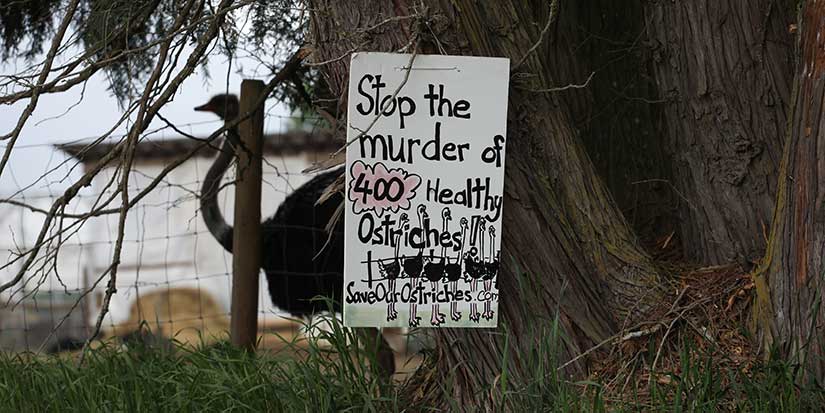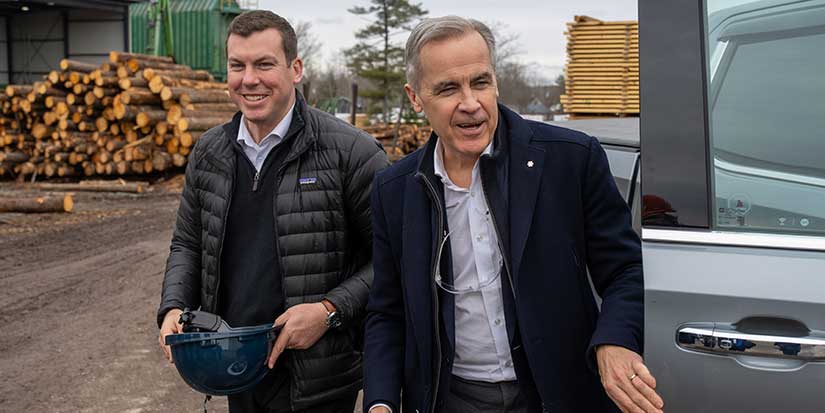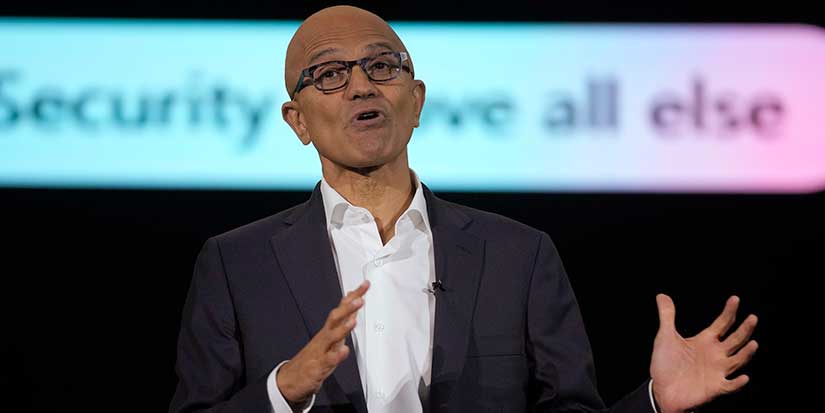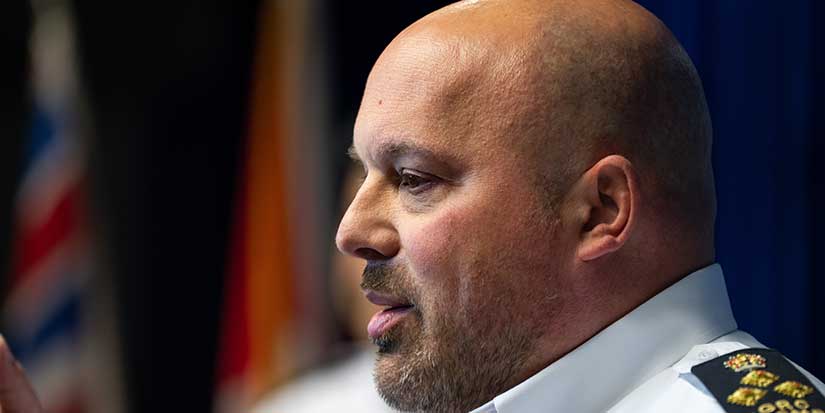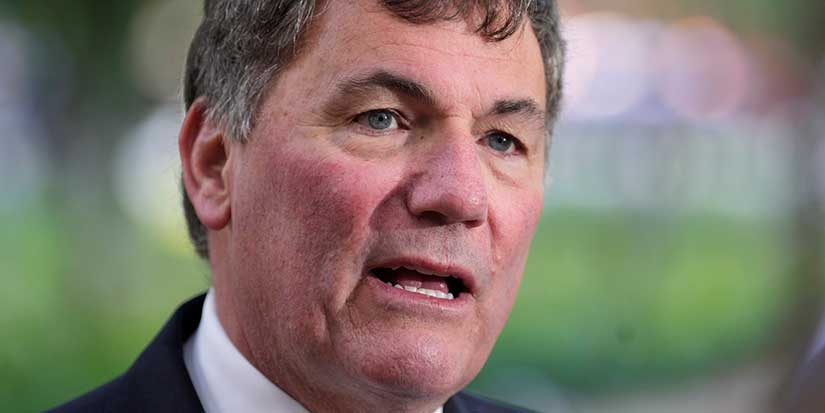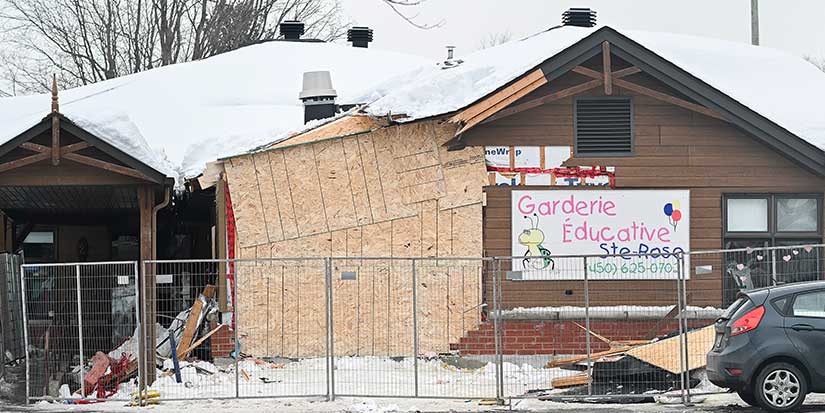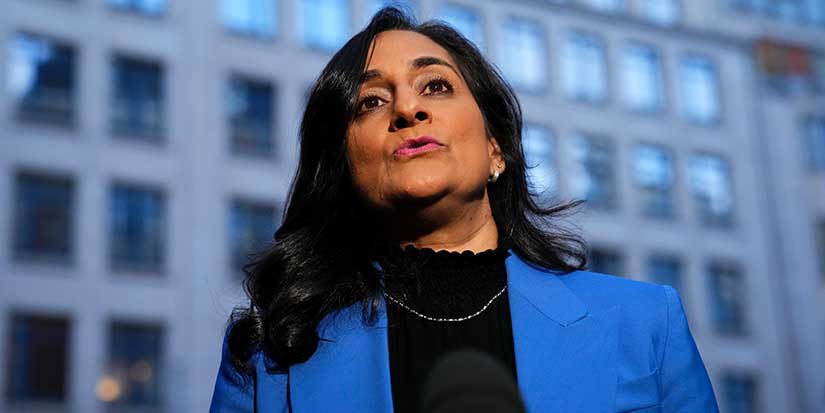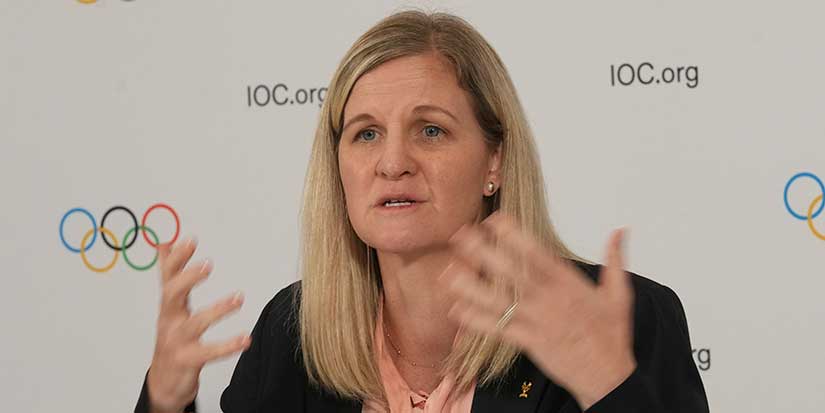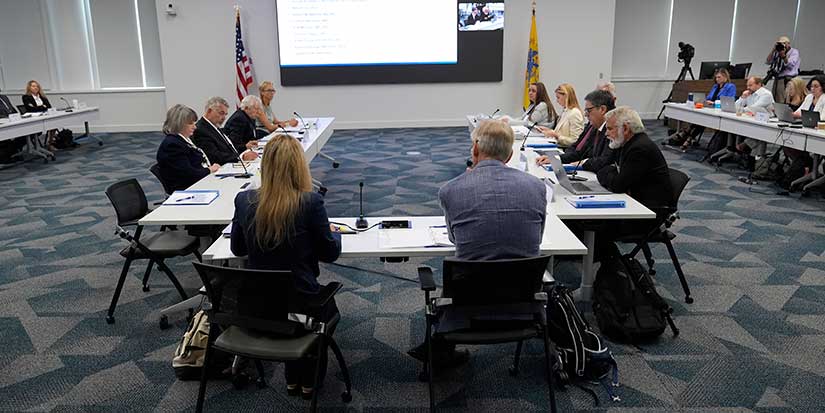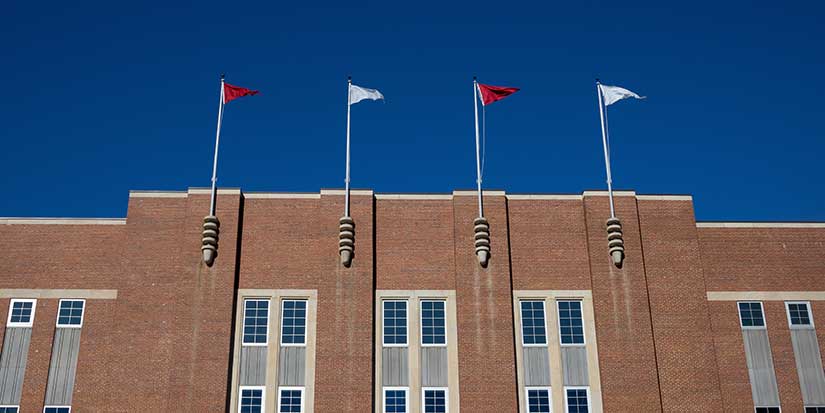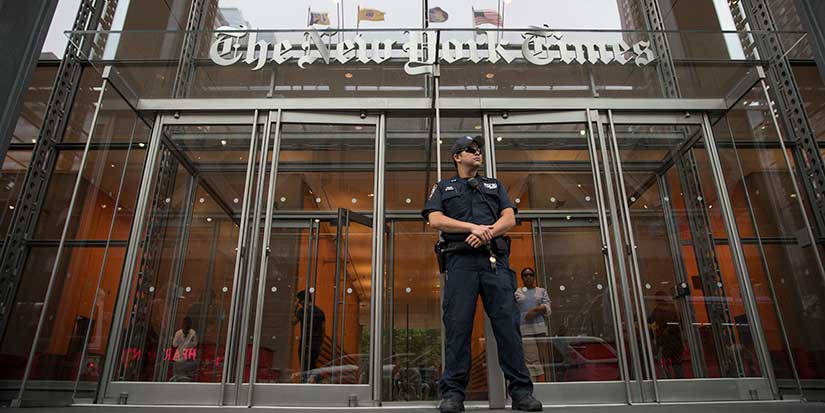Latest News
B.C. unveils COVID-19 vaccine rollout plan

Published 11:27 PST, Fri January 22, 2021
—
British Columbians are a step closer to receiving their COVID-19 immunizations, with additional details and timelines released for the largest and most complex immunization plan to ever roll out in the province.
Premier John Horgan, Health Minister Adrian Dix, provincial health officer Dr. Bonnie Henry, and Dr. Penny Ballem, executive lead for B.C.'s immunization efforts, announced today details of the next phases in B.C.'s COVID-19 Immunization Plan. The plan will see approximately 7.4 million doses of vaccine administered to every British Columbian who is eligible to receive it between April and the end of September.
"The COVID-19 pandemic has challenged us all in extremely difficult ways," Premier Horgan said. "Together, we have faced this pandemic with strength, courage and compassion, and we are starting to feel optimistic that, one day, COVID-19 will be in our rear view. At every step, our plan puts the health and safety of our most vulnerable people at the centre, and when it's your turn, I encourage everyone to get their COVID-19 vaccine and help us move forward, together, to a healthier province."
B.C.'s four-phased COVID-19 Immunization Plan is based on scientific evidence, as well as expert advice and guidance from the National Advisory Committee on Immunization, B.C.'s Immunization Committee and B.C.'s public health leadership committee. The plan, which got underway in December 2020, starts by first immunizing those who are most vulnerable to severe illness and death, including long-term care residents and the health-care workers who care for them, remote and at-risk Indigenous communities, and seniors.
"Since the onset of the COVID-19 pandemic, our Province, with steady guidance by Dr. Bonnie Henry, has made decisions based on science, data and evidence from health experts," Dix said. "Our plan puts people at the forefront of every decision, and our immunization rollout will guide us through the spring and summer, ensuring that those who are most in need of the vaccine will receive it as soon as possible."
With each phase, more people in B.C. will be eligible to be immunized.
Phase 1 has had more than 103,000 people in B.C. receiving their first dose of vaccine and second doses are underway. Phase 2, starting in late February, expands immunizations to additional vulnerable populations, Indigenous communities and Elders, health-care staff and all seniors over the age of 80. Together, these two phases are focused on people who are most at risk.
As age is the single greatest risk factor for severe illness and death, Phase 3, starting in April, will expand to include people between the ages of 79 to 75 and work backwards in five-year increments to include those age 60 and over. Also included in this phase are people with certain underlying health conditions that make them clinically extremely vulnerable (see backgrounder for details).
It is important to note that no one will lose their place in line. For example, if an elderly relative is in Phase 2 and cannot be immunized at that time, they can be immunized at any point thereafter.
"This is an extraordinary time with what is now the most significant step on our path to protecting our communities and our health-care system," Henry said. "For many months, British Columbians have been working hard to keep their friends, family and communities safe, and I want to thank everyone for their continued commitment."
As additional vaccines are approved and become available, people who are front-line essential workers or work in specific workplaces or industries may also be able to start receiving vaccines later in Phase 3.
Phase 4 is anticipated to begin in July 2021 for the rest of the eligible population, starting with people aged 59 to 55 and working backwards in five-year age groups until everyone over the age of 18 who wants a COVID-19 vaccine receives it.
"We're working closely with our regional health authorities, our colleagues at the BC Centre for Disease Control over these first several weeks of the plan," Ballem said. "Moving ahead, we will reach out to other community, faith and business leaders throughout the province to ensure that, by working together, the deployment of these vaccines is done quickly and safely. Every immunization for COVID-19 is one step closer to a healthier future for us all, and that is why so much effort and thought has gone into this plan."
Approximately four million British Columbians are eligible to receive the COVID-19 immunization. Starting in March 2021, pre-registration for the vaccine will begin to open online and by phone for the general public, starting with those aged 79 to 75. Those who are considered "clinically extremely vulnerable" will receive their immunization beginning in April. People who are pre-registered will get a reminder to book their appointment as soon as they are eligible.
Additional details on the registration process, registration timing and availability and immunization clinic locations will be available in the coming weeks.
Learn more at http://news.gov.bc.ca/files/BC_COVID-19_Immunization_Plan.pdf.
B.C. COVID-19 IMMUNIZATION PLAN:
B.C.'s four-phased COVID-19 Immunization Plan is based on scientific evidence, as well as expert advice and guidance from the National Advisory Committee on Immunization, B.C.'s Immunization Committee, and B.C.'s public health leadership committee.
At every step, it is focused on protecting those who are most vulnerable to severe illness.
Phase 1 (current phase)
Timeline: December 2020 to February 2021
• Residents and staff in long-term care facilities
• Individuals assessed for and awaiting long-term care
• Residents and staff of assisted-living residences
• Essential visitors to long-term care facilities and assisted-living residences
• Health-care workers providing care for COVID-19 patients in settings like intensive care units, emergency departments, paramedics, medical units and surgical units
• Remote and isolated Indigenous communities
Phase 2
Timeline: February to March 2021
• Seniors aged 80+ who are not immunized in Phase 1
• Indigenous (First Nations, Métis and Inuit) seniors age 65 and over, and Elders and additional Indigenous communities not immunized in Phase 1
• Hospital staff, community general practitioners and medical specialists not immunized in Phase 1
• Vulnerable populations living and working in select congregated settings
• Staff in community home support and nursing services for seniors
Phase 3 - General population immunization
Timeline: April to June 2021
• Timeline may change based on vaccine availability
People aged 79 to 60, in five-year increments (D1 = first dose/D2 = second dose)
• Aged 79-75; D1: April/D2: May
• Aged 74-70, D1: April/D2: May
• Aged 69-65; D1: May or June/D2: June or July
• Aged 64-60; D1: June/D2: July
• Aged 69-16 who are clinically extremely vulnerable; D1/D2 April - June
Note: As additional vaccines are approved and become available, people who are front-line essential workers or work in specific workplaces or industries may also be able to start receiving vaccines later in Phase 3 and into Phase 4.
Phase 4
Timeline: July to September 2021
• Timeline may change based on vaccine availability
People aged 59 to 18, in five-year increments: (D1 = first dose/D2 = second dose)
• Aged 59 to 55; D1: July/D2: August
• Aged 54 to 50; D1: July/D2: August
• Aged 49 to 45; D1: July/D2: August
• Aged 44 to 40; D1: July/D2: August
• Aged 39 to 35; D1: July or August/D2: August or September
• Aged 34 to 30; D1: August/D2: September
• Aged 29 to 25; D1: August or September/D2: September
• Aged 24 to 18; D1/D2: September
Immunization for clinically extremely vulnerable individuals
British Columbians aged 69 to 16 with the following conditions will be eligible for earlier immunization in Phase 3, as they are deemed clinically extremely vulnerable:
• solid organ transplant recipients
• people with specific cancers:
• people with cancer who are undergoing active chemotherapy
• people with lung cancer who are undergoing radical radiotherapy
• people with cancers of the blood or bone marrow such as leukemia, lymphoma or myeloma who are at any stage of treatment
• people having immunotherapy or other continuing antibody treatments for cancer
• people having other targeted cancer treatments that can affect the immune system, such as protein kinase inhibitors or PARP (Poly (ADP-ribose) polymerase) inhibitors
• people who have had bone marrow or stem-cell transplants in the last six months or who are still taking immunosuppression drugs
• people with severe respiratory conditions, including all cystic fibrosis, severe asthma and severe chronic obstructive pulmonary disease
• people with rare diseases that significantly increase the risk of infections (such as severe combined immunodeficiency, homozygous sickle cell disease)
• people on immunosuppression therapies enough to significantly increase risk of infection (biologic modifiers, high-dose steroids, AZT, cyclophosphamide)
• people who had a splenectomy (spleen removed)
• adults with very significant developmental disabilities that increase risk (details to come)
• adults on dialysis or with chronic kidney disease (Stage 5)
• women who are pregnant with significant heart disease, congenital or acquired
• significant neuromuscular conditions requiring respiratory support














